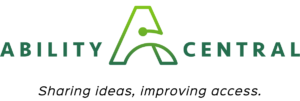Reach for the Cloud!
It’s a catch-22 of the nonprofit world. A new Constituent Relationship Management (CRM) system will help your organization raise more money more efficiently, but you don’t have the money to pay for it. What’s the solution?

Trying to escape the jaws of that dilemma often creates more problems. You get a cheap or free system, but you can’t afford the professional support to configure it for your organization, so it doesn’t meet your needs. Or you use all your budget to set up a sophisticated system but then can’t afford to train and support your staff to use it effectively. Perhaps you rely on volunteers to help, but they don’t follow through, and you end up worse off than before you started.
These challenges cause most nonprofits to avoid CRM systems entirely. A 2020 study of more than 11,000 nonprofits found that 54% of them still use a manual data entry process, with spreadsheets being the primary tool for data storage and sharing. Spreadsheets are great for managing budgets, but they can’t manage volunteers, track donor relationships, or automate reporting of your organization’s key performance metrics. As a result, most nonprofits must do far more work to raise less money than they could with a customized CRM.
Ability Central created the Quickstart Salesforce package to help nonprofit organizations in California avoid these problems.
We used our years of experience installing Salesforce for nonprofits to create a streamlined process to help small and medium-sized nonprofits install and learn a new CRM system. Our Quickstart package will help you quickly and confidently start using Salesforce to manage your staff, constituents, and donations.
Reach for the Cloud Grant
As part of its philanthropic mission, Ability Central is now offering a small number of grants annually to cover the complete cost of a Quickstart Salesforce implementation, plus support and maintenance from our staff for a full year. The combined value of the installation plus service is more than $10,000. The Reach for the Cloud Grant provides all this at no charge to the grantee.
As a recipient of the Reach for the Cloud grant, your organization will be provided with a dedicated Project Manager and expert technical resources to install and configure the Salesforce Nonprofit Success Pack (NPSP) which turns the #1 CRM for businesses into a Constituent Relationship Management system for nonprofits. The Salesforce NPSP, along with 10 enterprise user licenses, is provided without charge by Salesforce.org, the charitable wing of Salesforce.com. Ability Central will even help you with the application to Salesforce.org.
Ability Central understands that moving to a new system can be challenging which is why one year of our Customer Success Support Plan is included with every grant. We will be your partners as you learn your new CRM and navigate any challenges that may arise. We also provide a custom “Adoption” module that helps you track your organization’s progress in adopting Salesforce.
- A single, shared view of all household and organizational accounts, contacts, and addresses
- Tracking of one-time and recurring donations in one place that relates back to individual constituent profiles, allowing your organization to easily see giving history at an individual or household level
- Support for soft credits and in-kind gifts
- Insightful reports and dashboards
- Volunteer event management system to track your volunteers and their roles, hours worked, and shifts, as well as the option for allowing public signups online
- 12 months of technical support where Ability Central will correct any technical issues experienced (bugs, error messages, etc.) in your Salesforce instance built or configured by Ability Central
- A ticket management system built into your Salesforce instance to communicate any support requests to Ability Central
- Management of Salesforce releases (3x /year)
- Three hours of expert support per month in the first year to be used on discretionary tasks like new functionalities or features, new reports, or staff training
- Answers to any general “How to” questions that can be answered in 15 minutes or less for 12 months
Grant application
Ability Central is providing a handful of Reach for the Cloud grants for implementation in 2022. Applicants will be considered upon application receipt, so please apply as soon as you are ready to move forward.
Just check out the eligibility criteria below to see if your organization qualifies. If you are eligible, you can apply for a Reach for the Cloud grant by completing the grant application form on Foundant and submitting it. After clicking the Apply button below, you will be directed to the Foundant site, where you must create an account to apply.
If you have questions about your suitability or the grant process, please send us an email with any questions.
Non-profit organizations must meet the following requirements to be eligible for Ability Central’s Reach for the Cloud grant:
- Currently classified as a 501(c)3 nonprofit, tax-exempt organization
- Operating for at least three years since receiving its 501(c)3 classification from the IRS
- Located in California
- Providing services to the Deaf or disabled community
The following organizations are not eligible to receive Ability Central’s Reach for the Cloud grant:
- Organizations that engage in political activities
- Religious organizations without a secular community designation. To have a secular designation, an organization must provide services to people regardless of their religious beliefs and must not propagate a belief in a specific faith. It must also have a tax ID (EIN) separate from that of the church or religious organization.
- Organizations that advocate, support, or practice discrimination based on disability, age, ethnicity, sex, gender identity, gender expression, national origin, race, size, religion, sexual orientation, or socioeconomic background are not eligible to participate in this program. Organizations must be willing and able to attest that they do not discriminate on any of these grounds in order to receive a grant.
